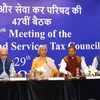How MSMEs are overcoming economic slowdown and staying afloat
Despite the economic crisis, large companies confirm huge growth in ecommerce. To stay viable, brands all over the world had to turn to online channels of commerce.
The micro, small, and medium enterprise (MSME) sector is important for creating jobs and is sometimes referred to as the "backbone" of the Indian economy because it employs a large number of people. The sector also generates low-cost employment opportunities in rural areas, which helps reduce the economy's regional imbalance. MSMEs account for 33.4 percent of India's manufacturing output and contribute 45 percent of the country's total exports. They also employ over 114 million people.
External influences have a major impact on the sector. COVID-19 has impacted every sector of the economy, but MSMEs have been particularly hard hit due to supply-side disruption and demand reduction. The rising costs have been the headline for the last few months as the inflation is at a 17-year high according to some estimates. Due to the Ukraine crisis and a weak rupee, the annual whole selling price (WPI) inflation rate jumped to 15.08 percent in April 2022, causing alarm among businesses.
Becoming resilient
Despite the economic crisis, large companies confirm huge growth in ecommerce. To stay viable, brands all over the world had to turn to online channels of commerce. Even established and well-known traditional firms realised that selling online was the only way to stay afloat during the global financial crisis.
Businesses must be innovative and receptive to adapt in the face of rapid digital transition and economic slowdown. In this context, some of the technologies will play a significant role in promoting ecommerce company transformation.
Full-stack data platforms will become more popular as firms' data stacks shift due to an increase in solutions that assist in the development of the full data stack, from data collecting and tracking to data storage, and from analytical dashboards to machine learning models.
Companies that develop expert, ready-to-use solutions to handle niche and very particular problems would benefit from customised machine learning solutions. Machine Learning APIs will be used to improve ecommerce images, detect ecommerce fraud, automatically generate content, and deliver personalised suggestions.
Advertising optimisation will assist organisations to improve their advertising ROI (return on investent) at scale by using automated ideas and actions, as well as automated creative development and experimental testing, to optimise digital advertising across a variety of platforms such as Facebook and Snapchat.
Other measures to stay afloat
To stay afloat despite the economic challenges, MSMEs are also regularising the price adjustments and increasing the prices as a regular component of one's business plan. As inflation rises, cash savings may lose a significant amount of purchasing power. This suggests that keeping a large amount of liquid cash on hand could be risky. To stay on top of the market, businesses are considering investing that money.
Another measure MSMEs are looking into is effective inventory management. One technique for combating inflation is to stock up on items and/or raw materials before the suppliers' costs rise. Simultaneously, when purchasing, businesses are avoiding placing one’s cash reserves in danger.
Since 2020, ecommerce has grown at an unprecedented rate over the world. India wasn't far behind in the race. In reality, the Indian ecommerce market has experienced phenomenal growth, with one of the fastest growth rates in the world. Reports indicate that India's ecommerce business would increase at a rate of 19.4 percent, reaching $111 billion by 2025 and the country’s ecommerce industry would have grown by 84 percent between 2020 and 2025. Industry data shows that currently, ecommerce sales account for 8 percent of total retail sales in India, up from 3.7 percent before the pandemic.
Online platforms complement physical stores. People want the option of choosing between offline and online channels since having both options is more convenient. Reports show that the availability of both channels has resulted in a 35 percent rise in average shopping rates. Starting an online store is a good way to maintain track of the company’s ecommerce finances and stay ahead of the competition.
While inflation is unavoidable and poses unique challenges for small business owners, it does not have to be the end-all for everyone. Despite the obstacles, MSMEs are overcoming the economic recession and staying afloat.
Edited by Kanishk Singh
(Disclaimer: The views and opinions expressed in this article are those of the author and do not necessarily reflect the views of YourStory.)









